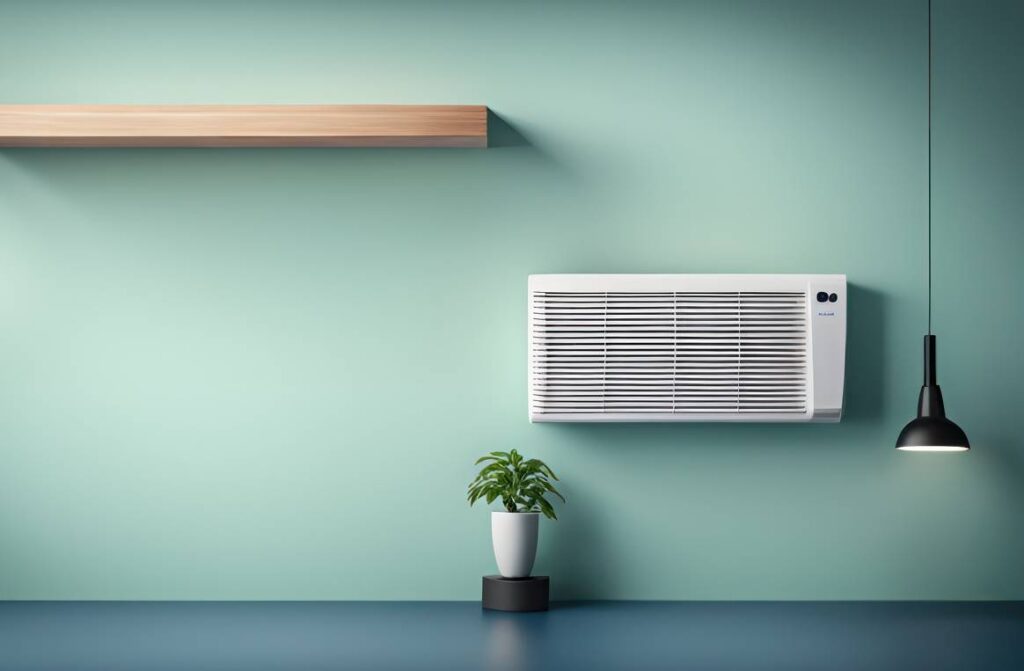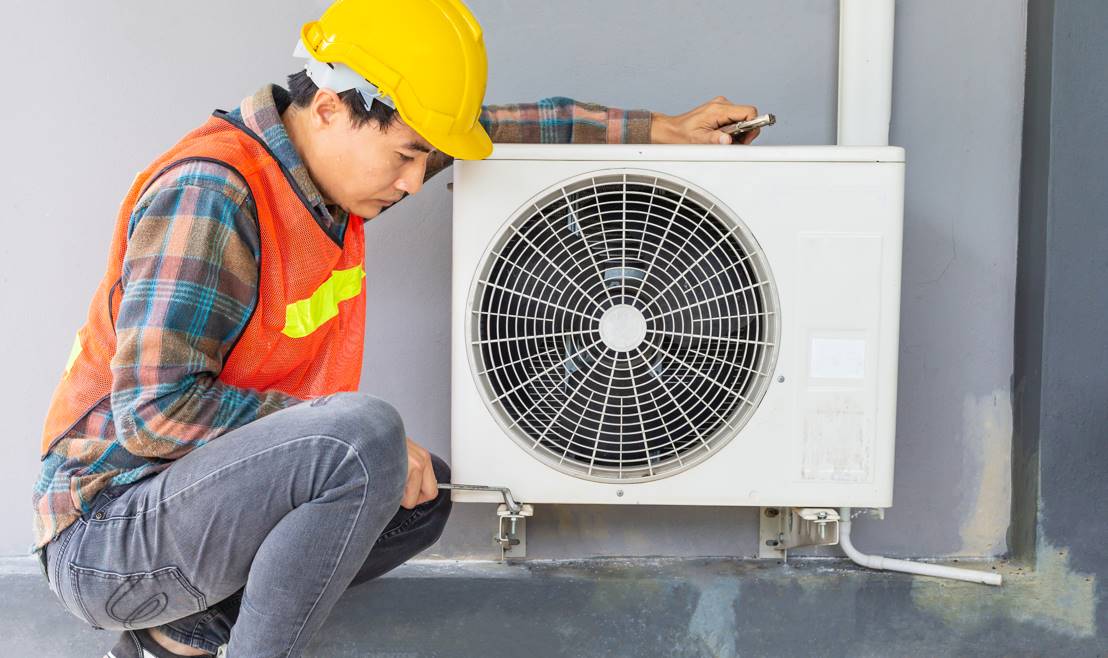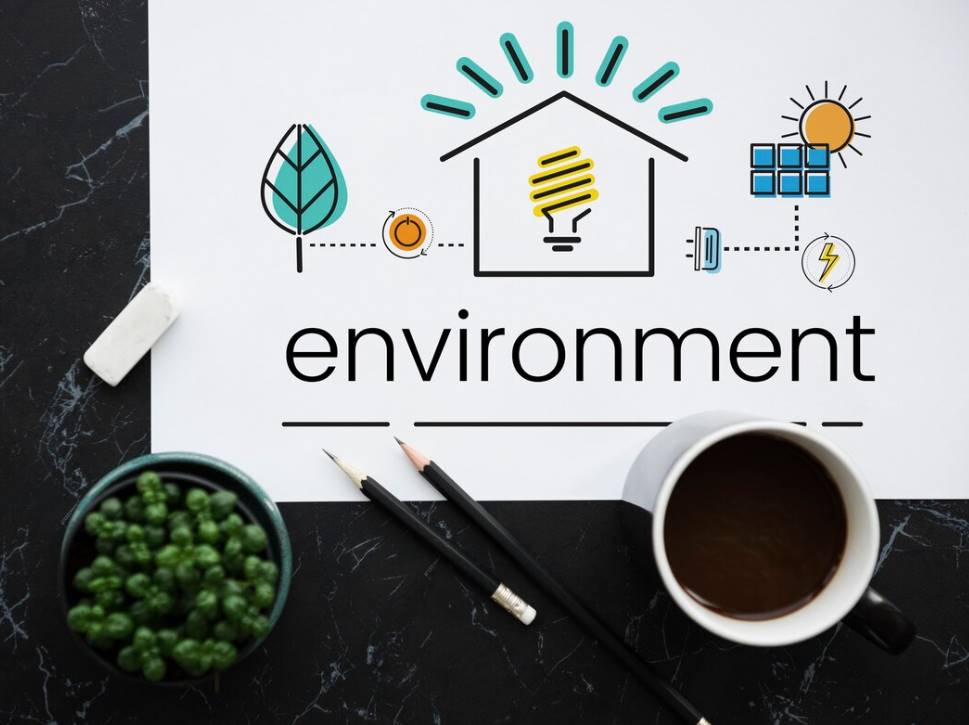Choosing the right time to replace your air conditioner requires careful consideration of many factors. If your air conditioner is older than 15, here are some things to consider before investing. Choosing an HVAC system adds another layer of complexity to an already challenging decision. If your air conditioner stops working, it can be difficult to tell if you need new batteries for the thermostat or to call a professional. The question of whether to repair or replace an older air conditioner frequently arises for homeowners.
When deciding whether to repair or replace an air conditioner, it is important to consider its age, performance and efficiency, and the cost of any necessary repair. Like an old car, air conditioners give warnings that something is wrong before they actually break. You can plan ahead for the purchase of a new air conditioner by monitoring the efficiency of your current system.
If your air conditioner stops working on the hottest day of the year, you can develop a less stressful plan of action if you know what to do in advance. An older machine may be kept operational for a few more years with regular maintenance and minor repairs.
Warning Signs Your AC Isn't Functioning Well Already
There are a number of signs that your air conditioner is malfunctioning, some of which may not be immediately apparent. Here are a few of the most obvious warnings about something wrong with your air conditioner. In the event that any of these problems arise, it is recommended that you contact a professional air conditioning installer for assistance.
- Vibrations and/or a/c noise that is abnormally high (squealing, grinding, or grating are common culprits)
- Humidity levels inside your home are rising.
- Constant malfunctions
- An alarming rise in your monthly electric bill
- Leakage of water or refrigerant
- Temperature regulator issues
- The unit emits hot air.
- The device will not power off or on.
- Lack of proper ventilation causes the air conditioner to cool some rooms more than others.
- Odors like smoke or mould coming from inside the device.
- The buildup of excessive dust in your residence
What Should You Think About Before Buying a New Air Conditioner?
Consider how often fixes must be made.
Think about how often you'll need to get the AC fixed. If you answered yes, then it might be time to get a new air conditioner. Otherwise, you should probably get the machine fixed.
If the repair cost is more than half the cost of a new air conditioner, it might be time to replace the system. Find out the price of a new air conditioning system and the price of repairs . You'll be able to choose wisely from that information.
How Much is the repair
If your air conditioner is still relatively new, replacing it is usually not a good financial decision unless repairs cost several thousand dollars.
As a rule of thumb, the "5,000 rule" is used by many HVAC technicians. When the sum of the unit's age and the repair cost is more than $5,000, replacing it may be more cost-effective. Fix it if the cost is less.
Environmental Effects and Availability of Refrigeration Systems
R-22 refrigerant is used in many air conditioners that are older than 10 years. The year 2020 marks the end of legally permitted production in the United States. As a result, the price of the remaining stock is much higher than that of the readily available R-410A refrigerant used in newer units. This product can contribute to the depletion of the ozone layer in our atmosphere, which will increase the cost and difficulty of any necessary refrigerant repairs.
Mismatched AC System
Your home's heating and cooling systems, both indoors and out, should function as a unified whole. Each system needs to have compatible internal components in order to function properly. As a result, a mismatched system will not function as well and will likely fail sooner.
It may be worthwhile to upgrade one or both units if you find that your incompatible setup is causing ongoing problems.
Comfort
When the air conditioner is on, how do you feel? Or do you find yourself turning the thermostat down frequently? An outdated air conditioner may struggle to maintain a comfortable indoor environment. High humidity and uneven temperatures can be mitigated with a modern air conditioner, especially one with variable speeds. These air conditioners have variable speeds, so you can control how cool or warm the room gets.
Noise
The cooling from your air conditioner should be felt, not heard. Consider a variable-speed air conditioner if you're worried about noise. The majority of modern air conditioners operate at a volume level barely audible over background noise.
Smart Thermostat Compatibility
A smart thermostat can help you save money on your utility bills without requiring much of your time or attention. You might be able to get a smart thermostat for free or at a significant discount from your utility company thanks to rebate programmes. Many thermostats learn your habits and create a schedule that optimises energy savings based on your preferred temperatures. They can adjust the temperature based on whether they think you're at home or not.
It's possible that a smart thermostat won't be compatible with your old air conditioner. If you want to make sure your smart thermostat works with your new air conditioner, you should have it installed.
Consider the age of the air conditioner.
The truth is that older air conditioners aren't as energy-efficient as the latest models. The average lifespan of cooling devices is between 10 and 15 years, so if your air conditioner is older than that, it may be time to replace it. This recommendation comes from Energy Star.
When to consider AC repair
- If your AC is younger than ten years old, there's still a chance it can serve you well for a while longer. Most well-maintained air conditioners have a lifespan of more than 15 years, so replacing yours may not be as appealing if it is still functioning adequately.
- It may be worthwhile to fix the system if the repair is a one-and-done deal and will not likely lead to further complications. Be sure to get an opinion from Cooling professional when they inspect your unit. You should probably factor in any indications of additional damage that could lead to future breakdowns.
- If you can get professional help for a low price: Before you break out the calculator to figure out the cost of repairs.
- This is more crucial than most people realise if you value your air conditioner. It makes sense to keep investing in your air conditioner if you enjoy its cooling power and can afford the monthly electricity costs. Of course, the inverse could also be accurate. Once again, cooling requirements vary widely. Talk to experts if you need help weighing the pros and cons.
When to consider AC replacement
- If you can afford it, you should get your AC fixed or replaced. Do not hesitate to purchase a new air conditioner if the price of repairs approaches or exceeds the price of a new unit. Potential energy savings could even help you break even.
- Ignore the malfunctioning system if you must have a more productive alternative. Your old air conditioner was costing you a fortune to run even before it stopped cooling. There is a limit to what can be accomplished through routine maintenance on an older system. In the long run, energy savings alone could justify a system upgrade.
- To increase your home's market value before selling it: If you ever find yourself in a position where you need to sell your home, a new air conditioner will have already paid for itself. It might decide whether you make a sale or lose out.
Make your house more energy efficient.
While installing your new system, you may discover several factors contributing to your home's inability to conserve energy or maintain a comfortable temperature. It's possible, for instance, that your home's insulation isn't as good as it should be and that you need a new unit.
Energy leaks, including those around your windows and doors, should also be checked for. If more work needs to be done on your property, replacing the air conditioner is probably not the best course of action.
Spend money wisely
Spending money on repairing an old HVAC system that is showing its age is more like throwing money away than investing in anything worthwhile. This is because it makes more financial sense to invest in a brand-new unit that will serve you well for many years rather than repairing an older one that will soon stop working.
Conclusion
When choosing whether to repair or replace an older air conditioner, consider factors such as its age, performance, efficiency, and repair costs. If your air conditioner stops working on the hottest day of the year, it may be time to consider a new system.
Warning signs of malfunctioning air conditioners include abnormal vibrations, rising humidity levels, constant malfunctions, an alarming rise in your monthly electric bill, leakage of water or refrigerant, temperature regulator issues, hot air emitting, lack of proper ventilation, odors, and excessive dust buildup.
To make an informed decision, consider how often repairs are needed and the cost of repairs. The "5,000 rule" suggests that replacing an older air conditioner may be more cost-effective if the sum of the unit's age and repair cost is more than $5,000.
Refrigerant systems should function as a unified whole, with R-22 refrigerant used in older air conditioners being more expensive than R-410A refrigerant used in newer units. Mismatched AC systems may cause ongoing problems and may be worth upgrading one or both units.
A modern air conditioner with variable speeds can help maintain a comfortable indoor environment by adjusting the temperature and humidity levels.
Consider the following factors when considering an air conditioner: noise, smart thermostat compatibility, age, repair costs, and potential energy savings. A smart thermostat can save money on utility bills and can be installed to ensure compatibility with your new air conditioner. Older air conditioners are less energy-efficient than the latest models, and if they are older than 10-15 years, it may be time to replace them. If your AC is younger than ten years old, it may be worth fixing it if it is a one-time deal and won't cause further complications. If you can afford professional help, consider investing in your air conditioner if you enjoy its cooling power and can afford the monthly electricity costs. If the cost of repairs approaches or exceeds the price of a new unit, consider replacing it. If you need to increase your home's market value before selling, a new air conditioner may have already paid for itself. Make your house more energy efficient by identifying factors contributing to energy conservation and temperature control. Investing in a brand-new unit that will serve you well for many years is more financially wise than repairing an older one.
Content Summary:
- Choosing the right time to replace your air conditioner requires careful consideration of many factors.
- If your air conditioner is older than 15, here are some things to consider before investing.
- Choosing an HVAC system adds another layer of complexity to an already challenging decision.
- The question of whether to repair or replace an older air conditioner frequently arises for homeowners.
- When deciding whether to repair or replace an air conditioner, it is important to consider its age, performance and efficiency, and the cost of any necessary repair.
- You can plan ahead for the purchase of a new air conditioner by monitoring the efficiency of your current system.
- There are a number of signs that your air conditioner is malfunctioning, some of which may not be immediately apparent.
- Here are a few of the most obvious warnings about something wrong with your air conditioner.
- Lack of proper ventilation causes the air conditioner to cool some rooms more than others.
- The buildup of excessive dust in your residence.If the repair cost is more than half the cost of a new air conditioner, it might be time to replace the system.
- If your air conditioner is still relatively new, replacing it is usually not a good financial decision unless repairs cost several thousand dollars.
- When the sum of the unit's age and the repair cost is more than $5,000, replacing it may be more cost-effective.
- Fix it if the cost is less.
- Your home's heating and cooling systems, both indoors and out, should function as a unified whole.
- Each system needs to have compatible internal components in order to function properly.
- As a result, a mismatched system will not function as well and will likely fail sooner.
- An outdated air conditioner may struggle to maintain a comfortable indoor environment.
- High humidity and uneven temperatures can be mitigated with a modern air conditioner, especially one with variable speeds.
- Noise The cooling from your air conditioner should be felt, not heard.
- You might be able to get a smart thermostat for free or at a significant discount from your utility company thanks to rebate programmes.
- It's possible that a smart thermostat won't be compatible with your old air conditioner.
- If you want to make sure your smart thermostat works with your new air conditioner, you should have it installed.
- Consider the age of the air conditioner.
- The average lifespan of cooling devices is between 10 and 15 years, so if your air conditioner is older than that, it may be time to replace it.
- If your AC is younger than ten years old, there's still a chance it can serve you well for a while longer.
- If you can get professional help for a low price: Before you break out the calculator to figure out the cost of repairs.
- This is more crucial than most people realise if you value your air conditioner.
- It makes sense to keep investing in your air conditioner if you enjoy its cooling power and can afford the monthly electricity costs.
- Once again, cooling requirements vary widely.
- Talk to experts if you need help weighing the pros and cons.
- If you can afford it, you should get your AC fixed or replaced.
- Do not hesitate to purchase a new air conditioner if the price of repairs approaches or exceeds the price of a new unit.
- Your old air conditioner was costing you a fortune to run even before it stopped cooling.
- There is a limit to what can be accomplished through routine maintenance on an older system.
- In the long run, energy savings alone could justify a system upgrade.
- To increase your home's market value before selling it: If you ever find yourself in a position where you need to sell your home, a new air conditioner will have already paid for itself.
- Make your house more energy efficient.
- While installing your new system, you may discover several factors contributing to your home's inability to conserve energy or maintain a comfortable temperature.
- It's possible, for instance, that your home's insulation isn't as good as it should be and that you need a new unit.
- Energy leaks, including those around your windows and doors, should also be checked for.
- If more work needs to be done on your property, replacing the air conditioner is probably not the best course of action.
- Spending money on repairing an old HVAC system that is showing its age is more like throwing money away than investing in anything worthwhile.
Frequently Asked Questions About Air Condition
The average lifespan of an air conditioning system is 10-15 years. Central air conditioner lifespan is one of the more important factors to consider when planning to invest in a replacement unit. If your unit is close to ten years old or older, you may want to consider replacing it instead of repairing it.
In general, most HVAC systems will last 15 to 25 years, but depending on the type of system and other contributing factors, that estimate can be highly variable. Even with HVAC maintenance and regular repairs, eventually, even the best boilers, furnaces, heat pumps, and air conditioners today will run their course.
Most 20-year-old HVAC systems are at the end of their life span, and if they are becoming increasingly more expensive to maintain and operate, it's likely a good time to consider a replacement. We typically recommend a replacement when it's a more cost-effective decision.
If you consistently get bills that are higher than what you expect, this could be a sign that it's time to replace your central air unit. Efficiency will decline as an AC gets older. A newer unit will run more efficiently, and you will likely end up saving money on your utility costs.
Older units may break down or need repair. However, new units are tested for SEER (Seasonal Energy Efficiency Ratio) and given an efficiency rating. Energy Star units have replaced many of the older air conditioners.



